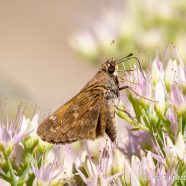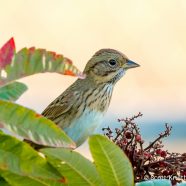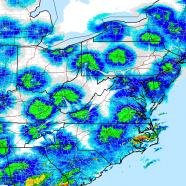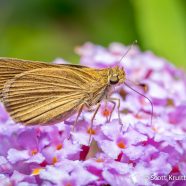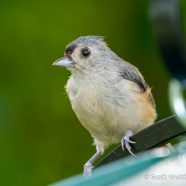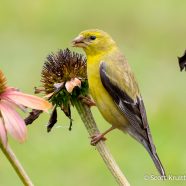Sachem (Atalopedes campestris)
This looks like a worn female Sachem (Atalopedes campestris) skipper butterfly, a species that is really popping up a lot now. Keep an eye on anything that is blooming late and you might spot one.
Read MoreLincoln’s Sparrow (Melospiza lincolnii)
I mentioned how Lincoln’s Sparrows were being spotted earlier than expected this year in my post about Palm Warblers from this morning (I wrote it yesterday). Sure enough, here’s my September Lincoln’s Sparrow from about 7:30AM today. I love them, and it was beautiful as always, but it is very unsettling to see another so early. Last week RTPI Development Director Linda Pierce sent me this article on Braddock Bay Bird Observatory and their increasingly early records, and one of the species named was the Lincoln’s Sparrow. I will be interested to see if we note a...
Read MoreRadar Migration September 11, 2016
Here we go again! The cold front that passed through the region this weekend has ushered in a strong northwest flow, and our birds are on the move – get out there tomorrow and enjoy it.
Read MoreSwarthy Skipper (Nastra lherminier)
Thanks so much to everyone who joined us for the butterfly walk at Stratford Point today! Thankfully the Swarthy Skipper (Nastra lherminier) made an appearance several times with several individuals around. Plenty of Monarchs and the uncommon Cloudless Sulphurs plus Gray Hairstreaks and much more delighted over 45 attendees. With such a large group it was hard to all follow the discussion or every butterfly but we hope everyone enjoyed some of the great sightings. Come back soon! You never know what you might find, like the rare Long-tailed Skipper I enjoyed a couple days ago for a brief few...
Read MoreTufted Titmouse
This Tufted Titmouse (Baeolophus bicolor) is excited to see some full feeders for fall foraging. What is the strangest place that you have seen one cache a seed at your home?
Read MoreAmerican Goldfinch Eating Coneflowers
Finally! It took me a while, but here is photographic proof of why you should not cut any dead coneflower heads. This American Goldfinch was chowing down and enjoying it so much that it ignored me. I frequently hear and occasionally see them dining like this, but never when my camera is near or I am close to them. Many plants end up producing delicious seeds in their…less aesthetically pleasing stages…and should be left alone as a meal for many forms of wildlife, or even just to propagate their species. Scott Kruitbosch Conservation & Outreach Coordinator
Read More



